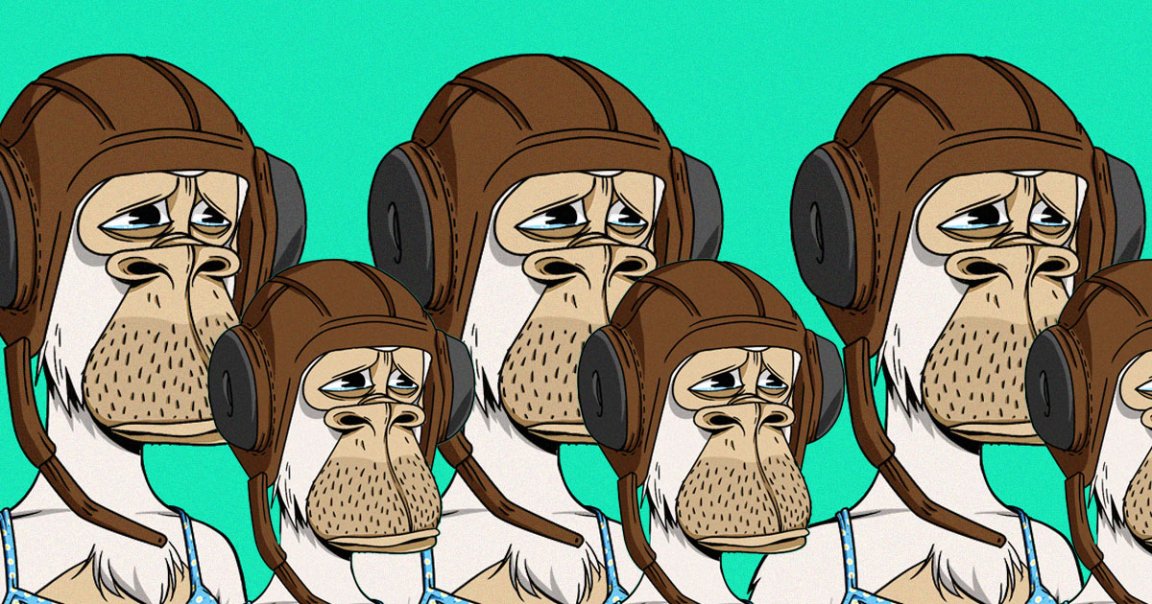
Copy That Floppy
The internet pounced when it emerged that Yuga Labs, the firm behind the infamous Bored Ape Yacht Club non-fungible tokens (NFTs), never registered a copyright for its computer-generated primates.
That fact was highlighted in a legal document submission from Yuga Labs itself, stemming from a lawsuit involving art world nepo baby and onetime Azealia Banks fiancé Ryder Ripps, who Yuga is suing for using its expensive ape imagery in his own NFT collection without the firm’s permission.
“Yuga Labs does not have a registered copyright,” the filing reads, “and there is therefore no imminent threat of a lawsuit for copyright infringement.”
The NFT purveyors, though, pushed back strongly against any claim that they don’t actually hold the copyright, pointing to documentation by the US Copyright Office that artistic work is copyrighted the “moment it is created.”
“Yuga Labs owns its copyrights,” the outfit’s layer Eric Ball, of the firm Fenwick and West, said in a statement. “It is well-established law that a copyright is formed the moment an author creates something original that they put down on paper. Copyright registration with the Federal government is also voluntary and not required.”
Value Proposition
Filed last June, Yuga’s suit is centered on Ripps’ satirical RR/BAYC collection, which he created after alleging that Bored Apes’ logo was based on Nazi imagery.
“Through months of intensive research,” Ripps’ statement on the collection’s site reads, “myself and other community members have discovered extensive connections between BAYC and subversive internet nazi troll culture.”
Along with trying to reappropriate the Bored Apes to send a message about his extremism allegations, Ripps also claims on the collection’s website that the project is meant as a statement about copyright and ownership in the NFT space.
In its filing, Yuga Labs added that it believes a “lack of federal copyright registration does not mean an entity does not own copyright,” and that “when provenance is documented… copyright protection is automatic.”
As such, the company says that there is “no confusion” about its NFT holders retaining their Ape rights, and slapped Ripps with a motion to dismiss when he tried to issue a counterclaim upon the copyright revelation.
Importantly, it’s worth noting that Yuga is not suing Ripps for violating copyright law at all, but rather for trademark infringement — and it does appear that the company has filed trademark claims.
Updated with additional context and comment from Yuga Labs.
More on the NFT market: Logan Paul Says His NFT Game Isn’t a Scam, He Just Hired Scammers to Build It and They Did Some Scamming